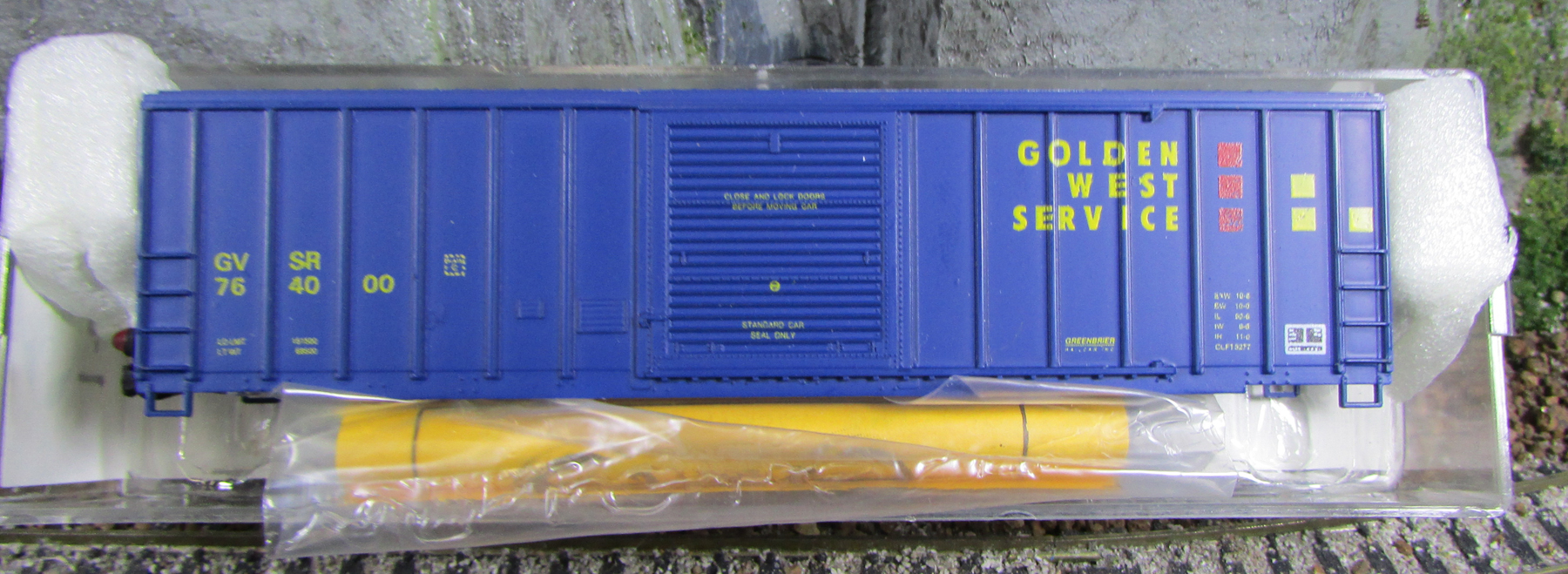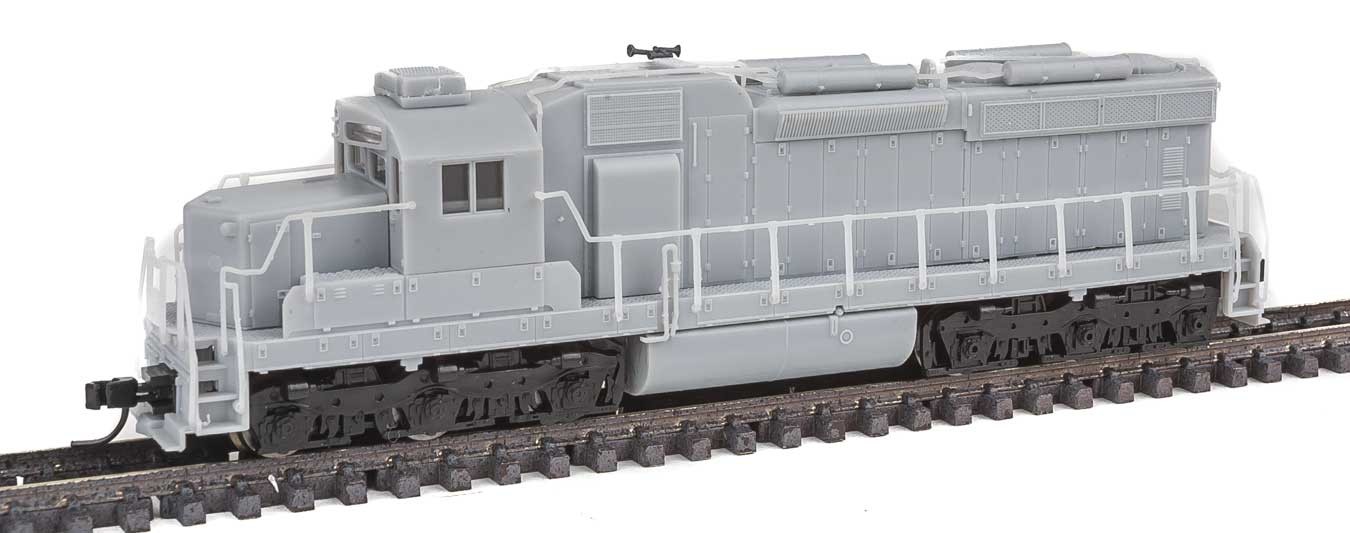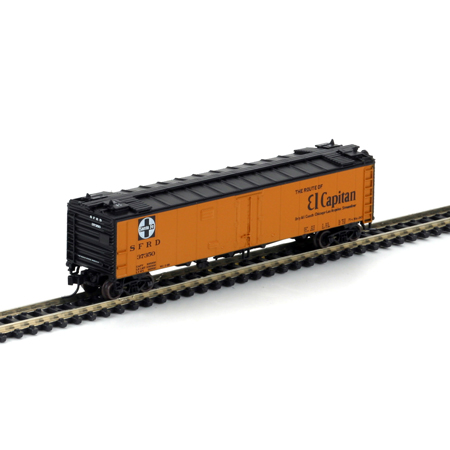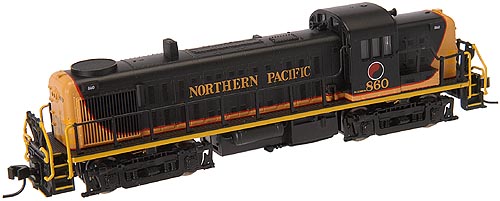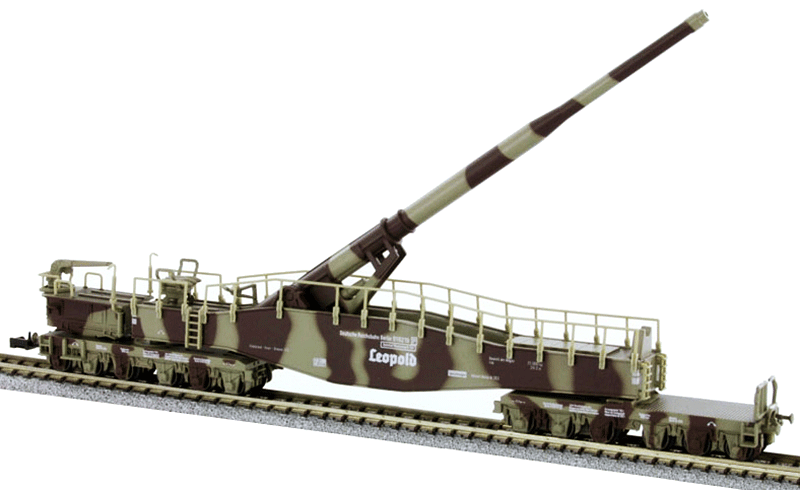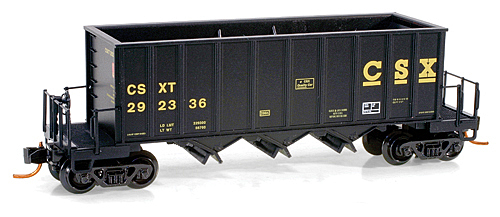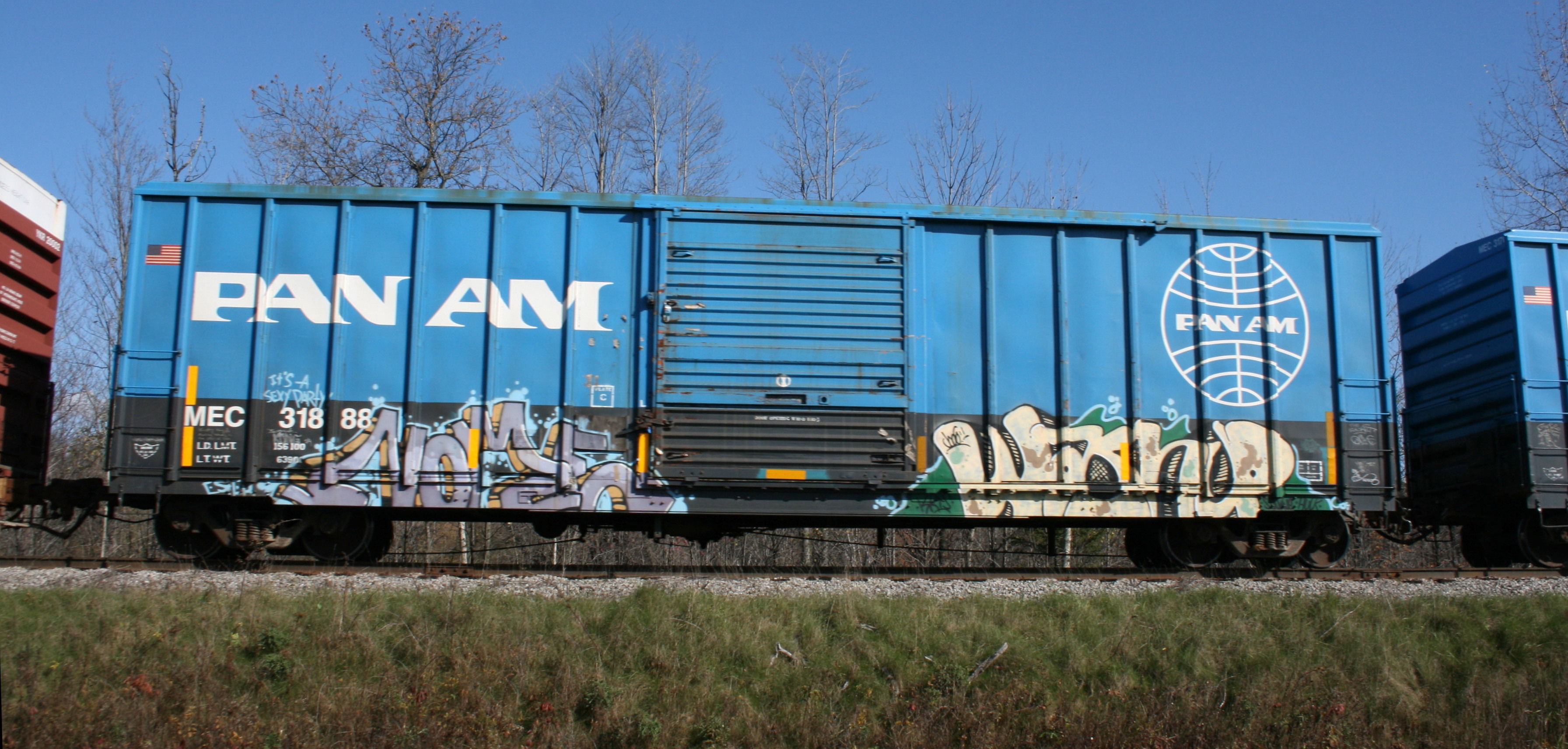Specific Item Information: Operating battery-powered FRED.
Model Information: Single Sliding Door Rib Side Without Roofwalk FMC. Originally designed by MDC Roundhouse. This tooling was acquired by Athearn in June of 2004 and re-released under the Athearn name. The MDC releases referred to this tooling as "FMC 50 Foot Boxcar - Single Door". Athearn refers to them as "FMC 5347 Box Car(sic)", but they are the same model.
The MDC Roundhouse releases typically came as kits (though some later releases were RTR) with an unpainted pewter underframe and truck-mounted couplers and blackened low-profile metal wheels. The Athearn releases have a nicer set of wheels (also low-profile). The Athearn models are always Ready-to-Run (RTR). The Athearn models have painted (black) underframes that are also metal (likely pewter or whatever MDC used). Athearn moved the couplers to become body-mounted and changed the coupling system from Rapido to McHenry. After inspecting them closely, I am not sure they can be swapped for MTL couplers without filing off part of the underframe, but I could be wrong. This presents a problem as McHenry couplers don't always play well with other couplers on long consists where that is a lot of force on each coupling point. The body has remained unchanged with the only detail part being the brake wheel.
The newer releases of this body style (as of 2017) market this boxcar as specifically modelling the FMC 5347 prototype.
The MDC Roundhouse releases typically came as kits (though some later releases were RTR) with an unpainted pewter underframe and truck-mounted couplers and blackened low-profile metal wheels. The Athearn releases have a nicer set of wheels (also low-profile). The Athearn models are always Ready-to-Run (RTR). The Athearn models have painted (black) underframes that are also metal (likely pewter or whatever MDC used). Athearn moved the couplers to become body-mounted and changed the coupling system from Rapido to McHenry. After inspecting them closely, I am not sure they can be swapped for MTL couplers without filing off part of the underframe, but I could be wrong. This presents a problem as McHenry couplers don't always play well with other couplers on long consists where that is a lot of force on each coupling point. The body has remained unchanged with the only detail part being the brake wheel.
The newer releases of this body style (as of 2017) market this boxcar as specifically modelling the FMC 5347 prototype.
Prototype History: It was the mid 1970s, and the incentive per diem box car boom was just beginning. New, brightly painted box cars seemed to appear overnight. Many were lettered for various short lines. FMC (Food Machinery Corporation) was a significant builder of many of these cars. The 50’ outside post, non-terminating end box car, became the foundation for new per diem cars built in the 1970s. The 50’ FMC cars also varied in door configuration and style to better suit each customer. These cars can still be seen today at work (2017) on many ralroads.
The main difference between the 5077 cu. ft cars built by FMC vs the 5277-5347 cu. ft cars built by the same manufacturers is the overall height of the car, the smaller 5077 cars were Plate B while the larger 5277-5347 cars were Plate C.
The main difference between the 5077 cu. ft cars built by FMC vs the 5277-5347 cu. ft cars built by the same manufacturers is the overall height of the car, the smaller 5077 cars were Plate B while the larger 5277-5347 cars were Plate C.
Road Name History: 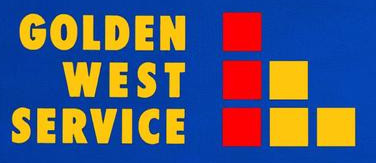 Golden West was a financial invention -- SP wanted to get capital equipment off the books but the railroad needed the cars. So a corporation was invented that used borrowed money to "buy" the cars, refurbish them, and lease them back to the SP. In the long run this is basically a transfer of wealth from the railroad to the investors, but in the short run it helped the railroad by providing working capital. The UP ended the whole deal as soon as it could and that is why everything is reverting to original ownership.
Golden West was a financial invention -- SP wanted to get capital equipment off the books but the railroad needed the cars. So a corporation was invented that used borrowed money to "buy" the cars, refurbish them, and lease them back to the SP. In the long run this is basically a transfer of wealth from the railroad to the investors, but in the short run it helped the railroad by providing working capital. The UP ended the whole deal as soon as it could and that is why everything is reverting to original ownership.

Brand/Importer Information: Aztec Manufacturing is an aftermarket decorator originally based in San Mateo, CA, now in Carson City, NV.
Historically, Aztec was known for their excellent quality aftermarket decorations of other manufacturers' rolling stock. Aztec repainted models by many different manufacturers including Life-Like, Atlas and others.
In the recent years, Aztec's focus is on track cleaning cars DCC-Ready frames for locomotives and high quality pad-printed freight cars.
Following retirement of its owner, Aztec closed its business in 2018.
Historically, Aztec was known for their excellent quality aftermarket decorations of other manufacturers' rolling stock. Aztec repainted models by many different manufacturers including Life-Like, Atlas and others.
In the recent years, Aztec's focus is on track cleaning cars DCC-Ready frames for locomotives and high quality pad-printed freight cars.
Following retirement of its owner, Aztec closed its business in 2018.
Item created by: gdm on 2017-01-05 08:33:50. Last edited by gdm on 2020-05-25 12:02:53
If you see errors or missing data in this entry, please feel free to log in and edit it. Anyone with a Gmail account can log in instantly.
If you see errors or missing data in this entry, please feel free to log in and edit it. Anyone with a Gmail account can log in instantly.


